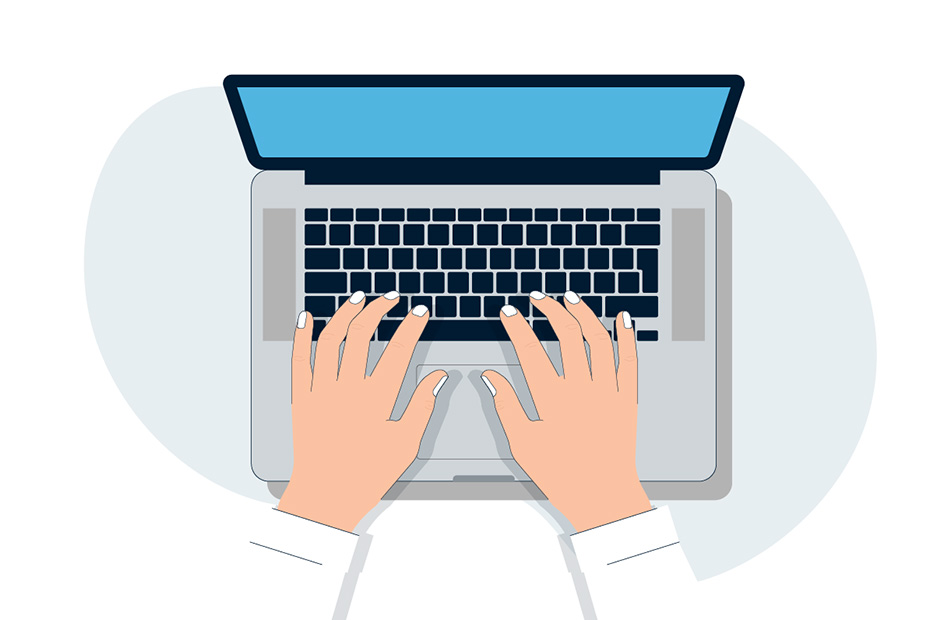Published June 10, 2021 • 5 Min Read
Wondering what personal information you may be sharing online? Don’t always have time to read through the privacy agreements companies want you to accept? Want to know a few handy tips to protect your privacy?
Here’s how to get started.
Apps and privacy
You love being able to have turn-by-turn navigation, get food delivered, and find that thing you lost with the flashlight app, but most apps require you give them some access to your data or your phone’s functions—like your camera or microphone. This information often is used by apps to help them work better, learn your habits, and sell things to you more effectively.
Apps need information for their functionality, but some apps collect information beyond what they need. For example, a free photo editing app might be accessing your physical location or a game may want to access your contacts and camera.
A good rule of thumb is that if an app is free, your information is the product. How do you keep control of your privacy?
-
When you download an app, review the permission settings and delete the app if they’re asking for too much.
-
Create a new account instead of logging in through social media. When you log into an app with your social media account, you often allow the social media service and the app to share information about you.
-
Compare similar apps to see if one asks for less information. Choose that one instead. It’s important to note that new features in iOS and Android now give you more control over your privacy. You now have more choice around what you share with an app.
-
Review your apps regularly and delete ones you’re not using. Apps may continue to collect your information even if you don’t open them.
-
If you have an Apple device, you can choose to offload rarely used apps either manually or automatically after a period of time. The app keeps your existing data and settings intact while it’s offloaded, but it loses permission to access your phone’s ongoing data until you download it again.
Social media and privacy
Social media is one place where people often are concerned about privacy.
In addition to the information you share — liking photos, answering quizzes, commenting on posts — sites store information about your location, age, the kind of device you’re on, the ads you click on and more — and sell it or give access to third parties like advertisers.
For example, if you ever click on an ad on social media, similar ads for furniture might follow you around the internet and across your devices.
How to limit what information a site collects and shares:
-
Give sites the least amount of information necessary. Just because the site is asking for it doesn’t always mean it’s necessary. For example, you don’t need to share your hometown on social media for the site to work.
-
If you don’t have time to read the full site’s terms of service, search for articles on the social media site’s privacy guidelines. Journalists regularly report on the concerns are and what data a site is collecting.
-
Review your social media account privacy settings to see where you can take back some control over your data. If your information shows up in internet search results, it’s also available to cyber criminals. Reducing the scope of who can find you is another way to protect yourself.
-
If you can, switch your social media accounts to private mode.
-
Delete old posts. You can get software that often does this automatically for you. For example, you can get a program that automatically deletes your tweets after a certain number of days.
Maintaining your online privacy
Just because digital privacy is becoming increasingly complicated to navigate doesn’t mean you can’t still take action to protect yourself. There are ways you can manage and control your online life to limit what’s shared.
-
Visit the privacy section of websites you log into and customize what they can and cannot collect and share about you.
-
Companies update their privacy policies, sometimes frequently. Check your privacy settings regularly and update your preferences.
-
Consider doing a digital privacy ‘spring cleaning.’ Every year or season, set yourself a reminder to delete accounts and apps that you’re not using. Ask the companies to purge your data by either selecting that as an option or sending them an email.
-
Privacy policies are sometimes long and difficult to read, but if a site or app has options in checkboxes, be sure to review those. That’s one place you can limit a company’s access to your information.
-
Search yourself using different browsers and search engines to see what pops up. If you’re a site member — like LinkedIn — and don’t want them to show up in searches, most will allow you to change your settings. Search past usernames or email addresses as well to see more of your digital footprint. You can then delete accounts you no longer want online.
-
Clear your cookies. Websites store these small pieces of data in your web browser to identify you. You can clear them regularly or set your browser to delete them automatically every time you close it.
Privacy is increasingly important
Many people don’t fully understand how companies use data and often get worried once they learn more. However, as outlined above, there are ways you can protect yourself and limit how companies share and use your data.
Still concerned about your data and privacy? Consider talking to your government representatives and support non-profits that are taking action on limiting what data companies can collect, how they can use it, and what power consumers have to control their information and privacy.
This article is intended as general information only and is not to be relied upon as constituting legal, financial or other professional advice. A professional advisor should be consulted regarding your specific situation. Information presented is believed to be factual and up-to-date but we do not guarantee its accuracy and it should not be regarded as a complete analysis of the subjects discussed. All expressions of opinion reflect the judgment of the authors as of the date of publication and are subject to change. No endorsement of any third parties or their advice, opinions, information, products or services is expressly given or implied by Royal Bank of Canada or any of its affiliates.
Share This Article






